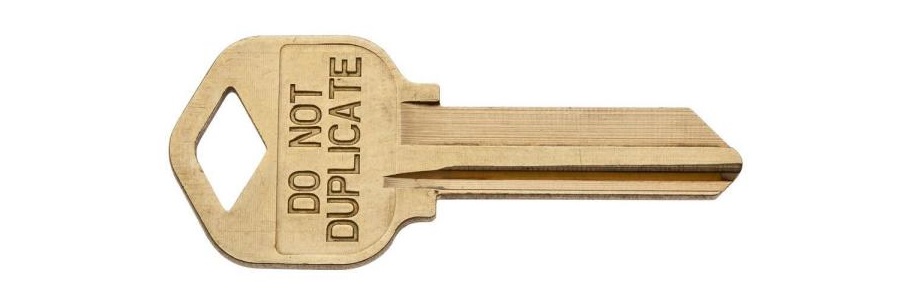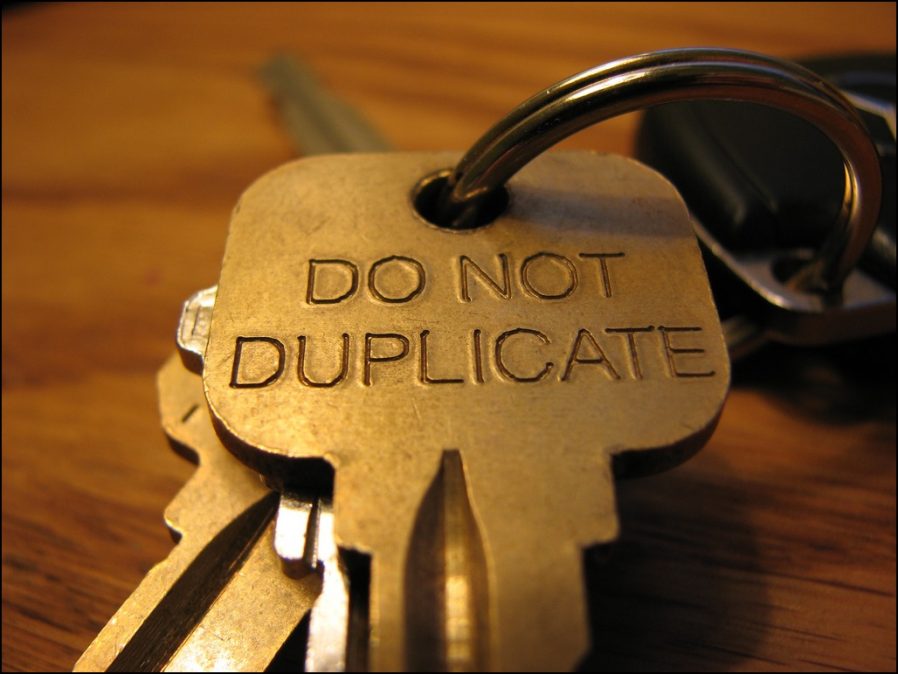Are keys stamped with, “do not duplicate key” secure?
There are basically two kinds of keys – restricted and unrestricted. If the key is truly a restricted key, only a specialized locksmith will be able to duplicate it. Simply marking the key as Do Not Duplicate does not automatically make it a restricted key.
A do not duplicate key is sometimes referred to as a DND key. A stamp with a warning may prevent some people from duplicating the key, however more secure options and steps will need to be taken if you truly do not want your keys duplicated. It is just a warning marked on a key that really means nothing when it all comes down to whether or not it’s possible to duplicate. It does nothing more than a sign on the property saying do not enter, or a sign at a pool or lake stating, “swim at your own risk”.
If you really want your key to not be duplicated, more secure steps that make a key difficult to duplicate. High-security keys are offered by specific brands of lock and key manufacturers and require specialized equipment to cut the keys or close monitoring and control key-blank distribution. However, key duplication is one of the most violated security policies in the business. If you do not have control over your keys, you do not have real security.

Why do “Do Not Duplicate Keys” exist?
Business owners and property owners began stamping “Do Not Duplicate” onto their keys in an attempt to control security violations from, for instance, terminated employees or former tenants. But, intruders are rarely ever stopped by just a warning message on a key. Rather, they simply take the key and have it duplicated. If someone wants to duplicate the key, there are plenty of locksmiths who have no problem doing so, and there is really no legal recourse. Though there are locksmiths who will not duplicate these kinds of keys, so having the DND message on your key may actually hamper your company’s ability to provide keys to the people who need them.
Mul-T-Lock key
The Mul-T-Lock key has cuts that are called dimple cuts. The key requires specialized equipment to copy them. The distribution of the blanks for the keys is controlled which limits access to only trusted key duplication partners.
Another security measure to take to ensure your key is not copied is to make the lock difficult to pick. A typical pin and tumbler lock is fairly easy to pick or bump open if you know what you are doing, and burglars learn these skills quickly. Some lock manufacturers add additional pins to the typical 5-pin tumbler lock. Additional features might also be added such as angles or dimples.
Force Resistant or Bump Proof
One of the fastest ways to break into a property with a lock is to use blunt force, sometimes this force is referred to as bumping a lock. Installing a lock that is bump resistant or bump proof will help prevent a possible break-in attempt by bumping.
When you need a do not duplicate key copied, you need to find a qualified locksmith who will be able to determine if you can legally duplicate the key. Better yet, implement extra security locks and keys to replace a do not duplicate key. Either way, the first and best place to look is to contact a local locksmith who will be able to serve your needs.

